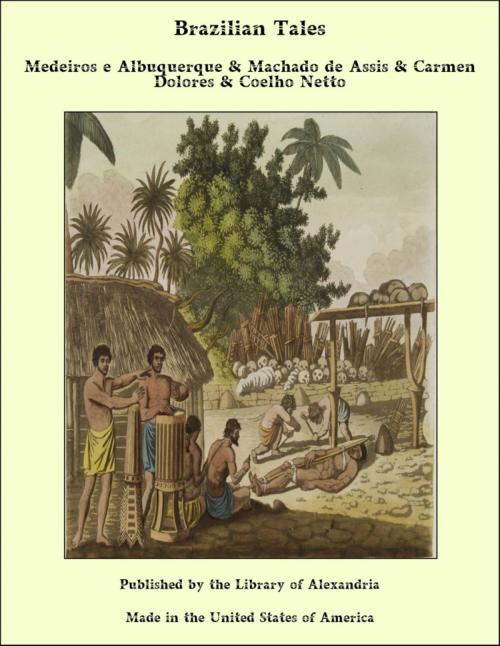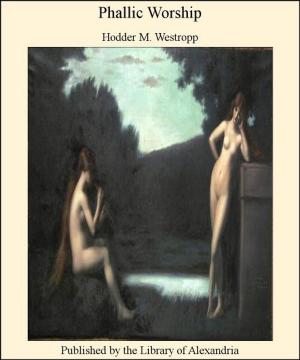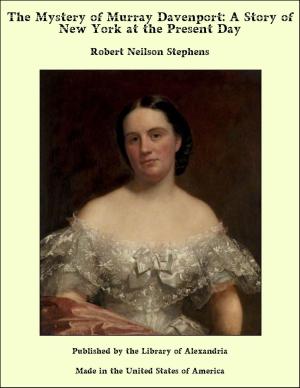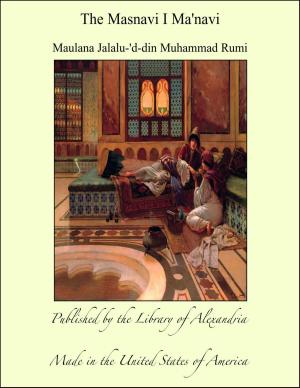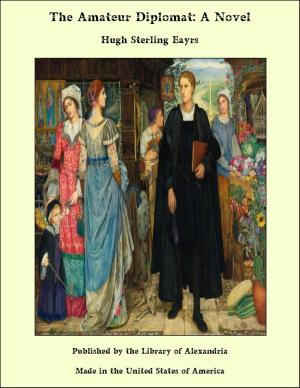| Author: | Medeiros e Albuquerque & Machado de Assis & Carmen Dolores & Coelho Netto | ISBN: | 9781465602282 |
| Publisher: | Library of Alexandria | Publication: | March 8, 2015 |
| Imprint: | Language: | English |
| Author: | Medeiros e Albuquerque & Machado de Assis & Carmen Dolores & Coelho Netto |
| ISBN: | 9781465602282 |
| Publisher: | Library of Alexandria |
| Publication: | March 8, 2015 |
| Imprint: | |
| Language: | English |
The noted Brazilian critic, José Verissimo, in a short but important essay on the deficiencies of his country's letters, has expressed serious doubt as to whether there exists a genuinely Brazilian literature. "I do not know," he writes, "whether the existence of an entirely independent literature is possible without an entirely independent language." In this sense Verissimo would deny the existence of a Swiss, or a Belgian, literature. In this sense, too, it was no doubt once possible, with no small measure of justification, to deny the existence of an American, as distinguished from an English, literature. Yet, despite the subtle psychic bonds that link identity of speech to similarity of thought, the environment (which helps to shape pronunciation as well as vocabulary and the language itself) is, from the standpoint of literature, little removed from language as a determining factor. Looking at the question, however, from the purely linguistic standpoint, it is important to remember that the Spanish of Spanish America is more different from the parent tongue than is the English of this country from that of the mother nation. Similar changes have taken place in the Portuguese spoken in Brazil. Yet who would now pretend, on the basis of linguistic similarity, to say that there is no United States literature as distinguished from English literature? After all, is it not national life, as much as national language, that makes literature? And by an inversion of Verissimo's standard may we not come face to face with a state of affairs in which different literatures exist within the same tongue? Indeed, is not such a conception as the "great American novel" rendered quite futile in the United States by the fact that from the literary standpoint we are several countries rather than one?
The noted Brazilian critic, José Verissimo, in a short but important essay on the deficiencies of his country's letters, has expressed serious doubt as to whether there exists a genuinely Brazilian literature. "I do not know," he writes, "whether the existence of an entirely independent literature is possible without an entirely independent language." In this sense Verissimo would deny the existence of a Swiss, or a Belgian, literature. In this sense, too, it was no doubt once possible, with no small measure of justification, to deny the existence of an American, as distinguished from an English, literature. Yet, despite the subtle psychic bonds that link identity of speech to similarity of thought, the environment (which helps to shape pronunciation as well as vocabulary and the language itself) is, from the standpoint of literature, little removed from language as a determining factor. Looking at the question, however, from the purely linguistic standpoint, it is important to remember that the Spanish of Spanish America is more different from the parent tongue than is the English of this country from that of the mother nation. Similar changes have taken place in the Portuguese spoken in Brazil. Yet who would now pretend, on the basis of linguistic similarity, to say that there is no United States literature as distinguished from English literature? After all, is it not national life, as much as national language, that makes literature? And by an inversion of Verissimo's standard may we not come face to face with a state of affairs in which different literatures exist within the same tongue? Indeed, is not such a conception as the "great American novel" rendered quite futile in the United States by the fact that from the literary standpoint we are several countries rather than one?
